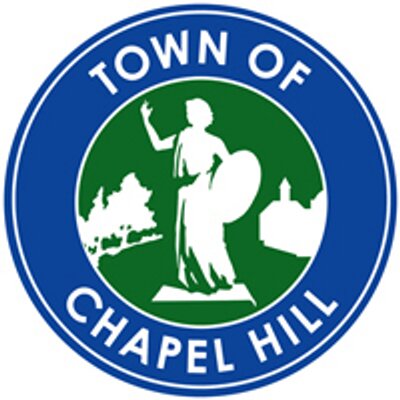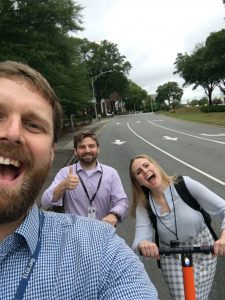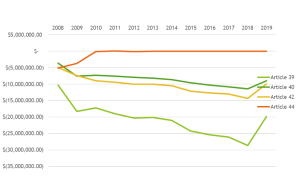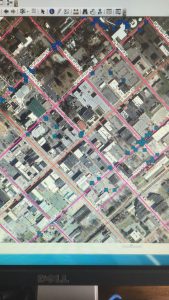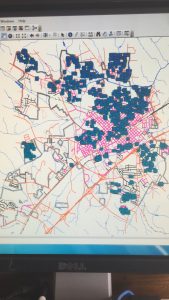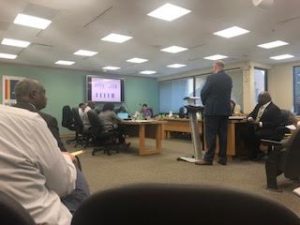My supervisors have been incredibly supportive of me getting a well-rounded local government experience. One of their goals as part of my time in Durham, was for me to have several ride-a-long opportunities. As the summer has gone on, I have been able to meet with Inspections, Public Affairs, Solid Waste, Police, and more.
Inspections
For my Inspections ride-a-long, I was with a member of the building inspections team. They generally look at the framework for incoming businesses and new homes. This division recently started using GIS to map out their route each morning to determine where they needed to go. Previously, they would have to create their own map, which added about an hour every day. By creating this system, it has increased productivity and allowed for more inspections per day to be accomplished.
On this ride I learned more about the City of Durham, and all of the moving parts that go into accomplishing a project. For example, for a house turning into an Airbnb that is changing its basic structure, at each stage of the changes, all divisions of Inspections must go to the site to approve their work. This can create “red tape” but ensures that all structures are as safe as possible.
Public Affairs
One of the jobs of the Public Affairs Department within the City Manager’s Office is to run the live-streams of the City Council meetings. Although at first it might seem simple, once you get a behind-the-scenes preview, you can better understand the complications. There are six different cameras, on at all times, and two people need to be in the back room monitoring them the whole time. Additionally, someone not on-site works on the closed captions the entire time. There is usually a delay in speech, and that is because they are on a call listening to the meeting. City Council nights can be exhausting for those who stay to create the televised session, but it adds to transparency.
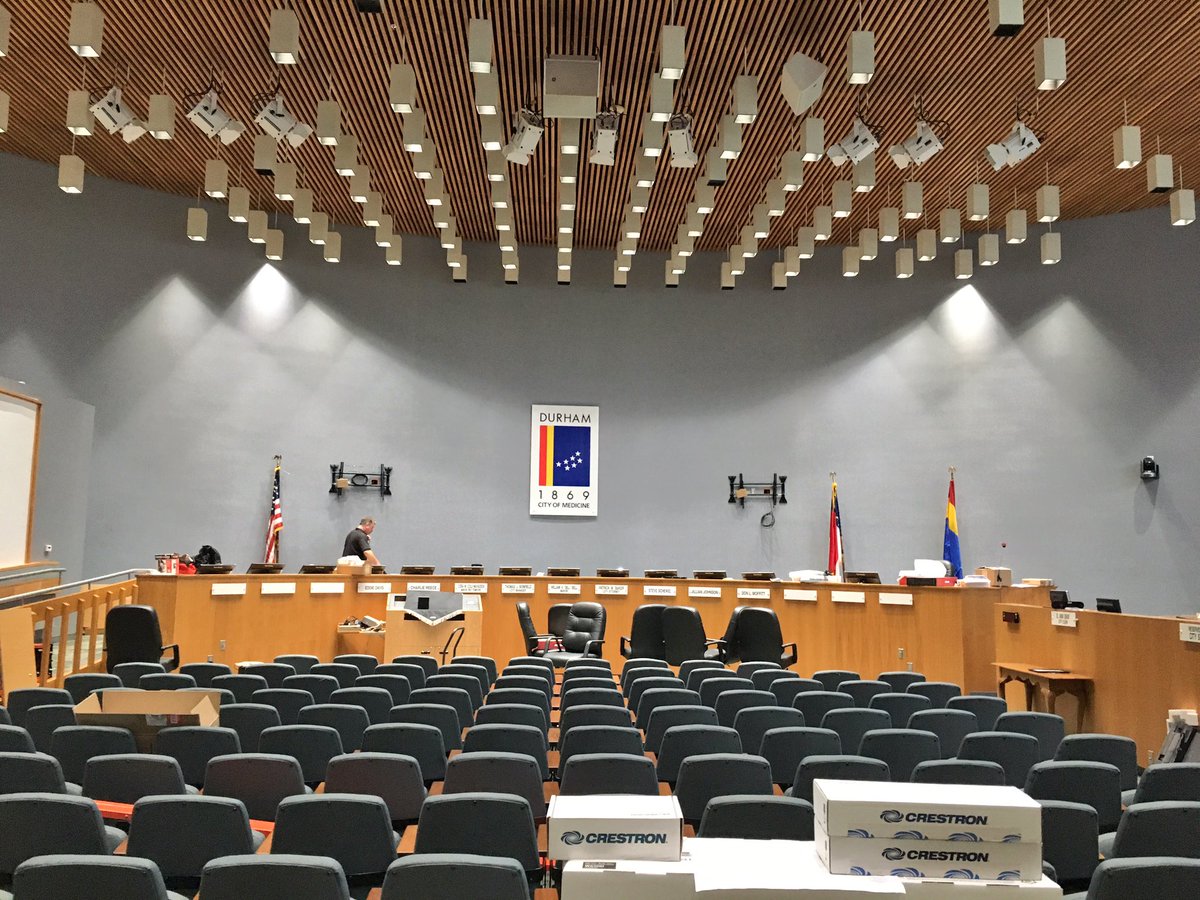
Solid Waste
This was an INCREDIBLE experience. I really got a better understanding of the City of Durham by spending four hours on a garbage truck. I was on one of the “exempt” trucks, which means that the truck picks up garbage from a resident’s address if they cannot take it to the curb themselves. These trucks go to each home, find the trash can, and empty it in the back of the truck personally. I did not even know this was offered by the City of Durham, and was in awe of the benefits it provides.
During my ride-a-long, I was on the recycling truck, and realized just how inaccurately people recycle. Although I’ve always known the process isn’t perfect, I was surprised by some of the things people considered to be recyclable materials. Durham’s Solid Waste Department is working hard to educate people about how to get rid of their trash, but hopefully more people will catch on.

Police
The Police Department was one of the ride-a-longs I was most excited for, and it lived up to the hype. Although it was raining and nothing too wild happened, I gained valuable knowledge on how the department functions. First, all issues that are called in need to have someone dispatched. Someone has to deal with the situation, even if it may seem insignificant. Further, a lot of people call the Police for problems that officers cannot do anything about it. For example, if two people bought something together and one of them takes it, the Police cannot file a theft report, because they technically obtained it together.

If you ever get a chance to attend any sort of ride-a-long, I recommend you take it! You’ll learn more than you could imagine.

